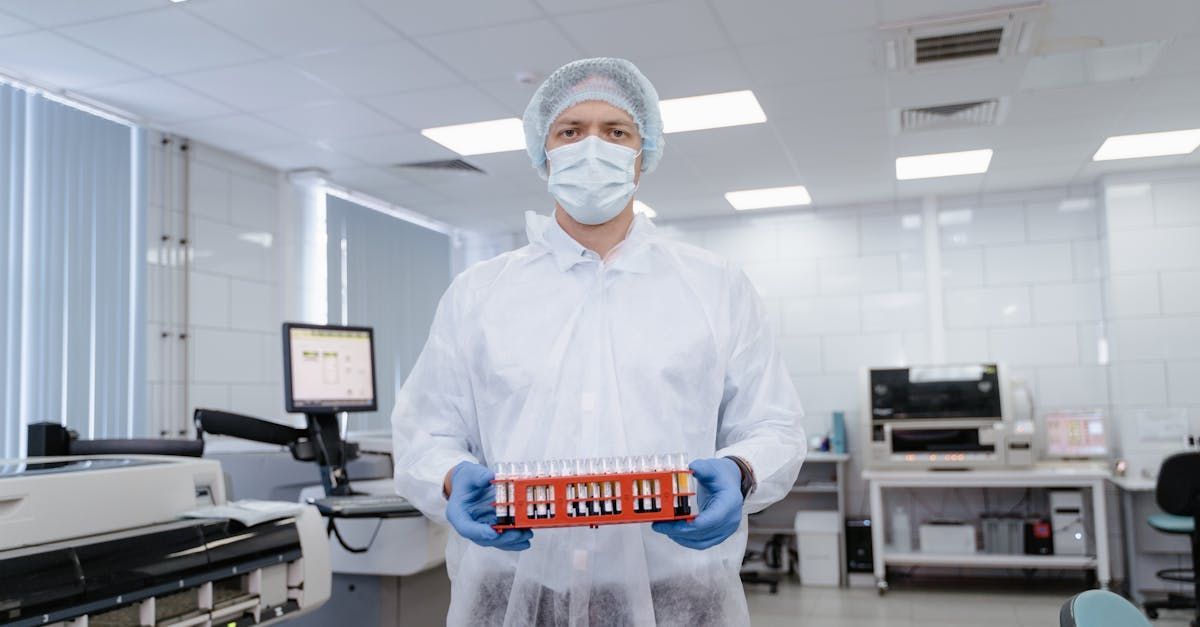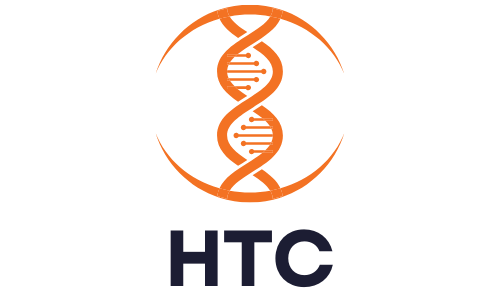AI and Machine Learning in HealthTech: Investment Opportunities
Artificial Intelligence (AI) and Machine Learning (ML) are no longer just buzzwords—they are transformative technologies reshaping various industries, including healthcare. AI involves the simulation of human intelligence processes by machines, while ML, a subset of AI, refers to systems that can learn from data, identify patterns, and make decisions with minimal human intervention. Together, they hold immense potential to revolutionize health technology by enhancing efficiency, accuracy, and personalization in medical care.
In the realm of health technology, AI and ML are driving significant advancements. These technologies are being integrated into diagnostic tools, enabling faster and more accurate disease detection. They are also playing a crucial role in the development of personalized medicine, tailoring treatments to individual patients based on their unique genetic makeup and health data.
Predictive analytics powered by AI can forecast disease outbreaks and patient outcomes, while AI-driven drug discovery accelerates the process of bringing new treatments to market. Additionally, AI is optimizing administrative workflows in healthcare institutions, reducing costs, and improving operational efficiency.
As AI and ML continue to evolve, the opportunities for investment in health technology are vast and varied. Identifying these opportunities is crucial for investors looking to capitalize on the growth of this dynamic sector. With the healthcare industry increasingly embracing digital transformation, investing in AI and ML technologies can yield significant returns while contributing to the advancement of global health. However, navigating this rapidly evolving field requires a deep understanding of the technologies, market trends, and the specific needs of the healthcare sector.
In this blog, we will explore the current landscape of AI and machine learning in health technology, delve into the major areas where these technologies are making an impact, and discuss key metrics for evaluating investment opportunities. By examining successful case studies and understanding the potential risks and challenges, investors can make informed decisions and tap into the transformative power of AI and ML in HealthTech.
The Current Landscape of AI and Machine Learning in HealthTech
AI and machine learning are already transforming numerous aspects of healthcare, making processes more efficient and outcomes more precise. Here, we provide an overview of the key applications of AI/ML in health technology:
AI and ML are revolutionizing medical diagnostics and imaging by enhancing the accuracy and speed of disease detection. Machine learning algorithms can analyze medical images such as X-rays, CT scans, and MRIs with incredible precision, often identifying abnormalities that might be missed by the human eye. For instance, AI systems have demonstrated remarkable accuracy in detecting cancers, heart conditions, and neurological disorders. Companies like Zebra Medical Vision and Aidoc are at the forefront, developing AI tools that assist radiologists in diagnosing complex conditions more accurately and quickly.
Personalized medicine, also known as precision medicine, leverages AI and ML to tailor medical treatments to individual patients based on their genetic, environmental, and lifestyle factors. This approach is especially promising in oncology, where treatments can be customized to target specific genetic mutations in a patient's tumor. AI algorithms analyze vast amounts of genomic data to identify the most effective treatment plans for patients. Companies like Tempus and Foundation Medicine are pioneers in this field, using AI to develop personalized cancer therapies and improve patient outcomes.
Predictive analytics in healthcare uses AI to analyze historical and real-time data to predict future health events. This application is vital for early intervention and preventive care. AI models can predict disease outbreaks, hospital readmissions, and patient deterioration, allowing healthcare providers to take proactive measures. For example, Health Catalyst uses predictive analytics to improve patient outcomes by identifying at-risk populations and recommending timely interventions.
AI is streamlining the drug discovery and development process, significantly reducing the time and cost involved in bringing new drugs to market. Machine learning models can analyze biological data to identify potential drug candidates, predict their efficacy, and optimize clinical trial designs. This approach accelerates the discovery of new treatments for various diseases. Notable companies in this space include BenevolentAI and Insilico Medicine, which use AI to identify new therapeutic targets and develop novel drugs.
AI is also improving the efficiency of administrative tasks and workflow management in healthcare. By automating routine tasks such as scheduling, billing, and patient data management, AI helps reduce administrative burdens on healthcare providers, allowing them to focus more on patient care. AI-powered systems can streamline operations, reduce errors, and lower operational costs. Companies like Olive and UiPath are developing AI solutions that automate healthcare administrative processes, enhancing overall efficiency.
Key Statistics and Market Trends
The AI health technology market is experiencing rapid growth, driven by the increasing adoption of AI solutions across various healthcare applications. According to a report by Grand View Research, the global AI in healthcare market size was valued at USD 10.4 billion in 2021 and is expected to expand at a compound annual growth rate (CAGR) of 37.5% from 2022 to 2030. This growth is fueled by factors such as the rising demand for personalized medicine, advancements in AI technology, and the increasing volume of healthcare data.
In addition, a report by Accenture estimates that AI applications can potentially save the U.S. healthcare economy up to USD 150 billion annually by 2026. These savings come from reducing unnecessary hospitalizations, optimizing resource utilization, and improving clinical outcomes through early detection and intervention.
As the healthcare industry continues to embrace AI and machine learning, the opportunities for innovation and investment are vast. In the following sections, we will delve deeper into the major areas of impact and provide insights into evaluating investment opportunities in this transformative field.
Major Areas of Impact
AI Algorithms for Medical Imaging:
AI algorithms are transforming medical imaging by providing advanced tools that enhance the accuracy and efficiency of diagnostic processes. These algorithms can analyze medical images such as X-rays, MRIs, and CT scans, identifying patterns and anomalies that might be missed by human radiologists. Deep learning techniques, in particular, have shown remarkable ability to detect conditions like cancer, cardiovascular diseases, and neurological disorders with high precision.
Examples of Successful AI Diagnostic Tools:
Several AI diagnostic tools have already proven successful in clinical settings. For example, Google's DeepMind developed an AI system that can diagnose eye diseases from retinal scans with an accuracy comparable to leading experts. Similarly, Zebra Medical Vision's AI solutions can read medical imaging scans to detect a range of conditions, from liver disease to breast cancer. Aidoc's AI-powered radiology platform helps radiologists prioritize urgent cases and improve diagnostic accuracy.
Investment Opportunities in Companies Developing Diagnostic AI Tools:
Investing in companies that develop AI diagnostic tools presents a significant opportunity. The growing demand for accurate and efficient diagnostic solutions, coupled with advancements in AI technology, makes this sector highly attractive. Companies like Aidoc, Zebra Medical Vision, and Arterys are leading the way and represent promising investment opportunities. Investing in these companies can yield high returns while contributing to the improvement of diagnostic accuracy and patient outcomes.
Role of AI in Tailoring Treatments to Individual Patients:
AI plays a crucial role in personalized medicine by analyzing vast amounts of genetic, clinical, and lifestyle data to tailor treatments to individual patients. Machine learning algorithms can identify the most effective treatment plans based on a patient's unique genetic makeup and health history. This approach leads to more precise and effective therapies, reducing the trial-and-error aspect of traditional treatments.
Success Stories and Case Studies
Personalized medicine has shown success in various fields, particularly oncology. For instance, Tempus uses AI to analyze clinical and molecular data, helping oncologists develop personalized cancer treatment plans. Another example is Foundation Medicine, which uses genomic profiling to match cancer patients with targeted therapies and clinical trials, significantly improving patient outcomes.
Companies Leading in Personalized Medicine AI:
Leading companies in the personalized medicine space include Tempus, Foundation Medicine, and GNS Healthcare. These companies leverage AI to provide tailored treatment options and improve patient care. Investing in these firms offers substantial growth potential as the demand for personalized medicine continues to rise.
Predictive Analytics
AI in Predicting Disease Outbreaks and Patient Outcomes
Predictive analytics powered by AI can forecast disease outbreaks and patient outcomes by analyzing historical and real-time data. These predictive models help healthcare providers take proactive measures, such as early interventions and resource allocation, to mitigate risks and improve patient care.
Real-World Applications and Benefits
In practice, predictive analytics has been used to predict hospital readmissions, patient deterioration, and even disease outbreaks. For example, Health Catalyst uses predictive models to identify at-risk patients and recommend timely interventions, leading to better patient outcomes and reduced healthcare costs. BlueDot, another AI company, successfully predicted the outbreak of COVID-19, showcasing the potential of AI in global health surveillance.
Startups and Firms Focusing on Predictive Analytics in Healthcare
Startups like Health Catalyst, Lumiata, and BlueDot are making significant strides in predictive analytics. These companies offer innovative solutions that help healthcare providers predict and prevent adverse health events. Investing in these startups can be highly lucrative as predictive analytics becomes an integral part of healthcare systems worldwide.
Drug Discovery and Development
AI-Driven Drug Discovery Processes:
AI is revolutionizing drug discovery by analyzing biological data to identify potential drug candidates, predict their efficacy, and optimize clinical trial designs. This approach significantly reduces the time and cost associated with traditional drug discovery methods.
Reducing Time and Cost of Bringing Drugs to Market:
AI-driven drug discovery accelerates the development of new treatments by identifying promising compounds faster and more accurately. This reduction in time and cost is crucial in addressing urgent medical needs and bringing life-saving drugs to market more efficiently.
Key Players and Emerging Startups in This Space:
Key players in AI-driven drug discovery include BenevolentAI, Insilico Medicine, and Atomwise. These companies use AI to uncover new therapeutic targets and develop novel drugs. Emerging startups like Recursion Pharmaceuticals and Exscientia are also making significant contributions to this field. Investing in these companies offers substantial growth potential as AI continues to reshape the drug discovery landscape.
Administrative Tasks and Workflow Optimization
AI in Automating Administrative Tasks:
AI is improving healthcare efficiency by automating routine administrative tasks such as scheduling, billing, and patient data management. This automation reduces administrative burdens on healthcare providers, allowing them to focus more on patient care.
Improving Efficiency and Reducing Costs:
AI-driven automation enhances operational efficiency, reduces errors, and lowers operational costs. For instance, Olive AI automates repetitive administrative tasks, leading to significant cost savings for healthcare organizations. UiPath offers robotic process automation (RPA) solutions that streamline healthcare workflows and improve overall efficiency.
Investment Potential in Companies Offering AI Solutions for Healthcare Administration:
Investing in companies that provide AI solutions for healthcare administration presents significant opportunities. As healthcare organizations increasingly adopt AI to streamline operations, companies like Olive AI, UiPath, and Automation Anywhere stand to benefit. These firms represent promising investment prospects due to their innovative solutions and growing market demand.
Evaluating Investment Opportunities
Key Metrics for Assessing AI/ML HealthTech Investments
Technological Innovation and Uniqueness:
When evaluating AI/ML HealthTech investments, one of the most critical factors is the level of technological innovation and uniqueness. Investors should look for companies that offer groundbreaking solutions with a distinct competitive edge. This could be in the form of proprietary algorithms, unique data sets, or innovative applications of AI in healthcare. The ability of a technology to address unmet medical needs or significantly improve existing processes is a strong indicator of its potential success.
Market Potential and Scalability:
The market potential and scalability of an AI/ML HealthTech solution are crucial metrics to consider. Investors should assess the size of the target market, the growth rate of the sector, and the solution's ability to scale across different regions and applications. A scalable solution that can be adapted to various healthcare settings or integrated with existing systems is more likely to achieve widespread adoption and generate substantial returns.
Regulatory Landscape and Compliance:
Navigating the regulatory landscape is a significant challenge in the healthcare industry. Investors should evaluate the company's understanding of and compliance with relevant regulations, such as the FDA's guidelines for AI/ML-based medical devices or the GDPR for data privacy. A company's ability to achieve regulatory approval and maintain compliance is essential for long-term success and market entry.
Financial Health and Funding History:
The financial health of a company is another key metric for assessing investment opportunities. Investors should review the company's financial statements, funding history, and revenue projections. Companies with a strong financial foundation and a history of securing funding from reputable sources are generally more stable and capable of sustaining growth. Additionally, the ability to attract high-profile investors or partnerships can be a positive indicator of a company's potential.
Leadership and Team Expertise:
The expertise and experience of a company's leadership and team are vital to its success. Investors should assess the backgrounds of key team members, including their experience in AI, healthcare, and business development. A strong leadership team with a proven track record can drive innovation, navigate challenges, and execute the company's vision effectively.
Risks and Challenges
Ethical Considerations and Data Privacy Issues:
Ethical considerations and data privacy issues are significant challenges in the AI/ML HealthTech sector. Investors should be aware of the ethical implications of AI applications, such as potential biases in algorithms and the impact on patient care. Additionally, ensuring data privacy and security is critical, as healthcare data is highly sensitive. Companies that prioritize ethical practices and robust data protection measures are better positioned to gain trust and succeed in the market.
Regulatory Hurdles and Approval Processes:
Regulatory hurdles and approval processes can be major obstacles for AI/ML HealthTech companies. Obtaining regulatory approval can be time-consuming and costly, and any delays or failures in this process can significantly impact a company's ability to bring its products to market. Investors should consider the regulatory landscape and the company's strategy for navigating these challenges.
Technological Limitations and Reliability:
The technological limitations and reliability of AI/ML solutions are also important considerations. While AI offers immense potential, it is not without its limitations. Issues such as algorithmic biases, data quality, and system reliability can affect the performance and acceptance of AI solutions. Investors should evaluate the robustness of the technology, the quality of the data used for training models, and the company's approach to addressing these limitations.
Case Studies of Successful Investments
Detailed Examples of Successful AI/ML HealthTech Investments
Example 1: Tempus
Tempus, a leading company in precision medicine, leverages AI and ML to analyze clinical and molecular data, helping oncologists develop personalized cancer treatment plans. Since its founding in 2015, Tempus has raised over $1 billion in funding, with a valuation exceeding $8 billion. The company's success can be attributed to its robust data infrastructure, advanced analytics capabilities, and strong partnerships with healthcare institutions.
Example 2: Zebra Medical Vision
Zebra Medical Vision has developed AI-powered tools for medical imaging, capable of detecting a wide range of conditions from imaging scans. The company has secured significant investments, including $30 million in a Series C funding round led by aMoon and Aurum Ventures. Zebra's success stems from its innovative technology, regulatory approvals, and strategic partnerships with healthcare providers and imaging equipment manufacturers.
Example 3: Health Catalyst
Health Catalyst focuses on using AI for predictive analytics and data warehousing in healthcare. The company went public in 2019, raising $182 million in its initial public offering (IPO). Health Catalyst's success is due to its comprehensive data platform, which integrates various healthcare data sources to provide actionable insights. The company's commitment to improving patient outcomes and reducing healthcare costs has resonated with investors and healthcare organizations alike.
Example 4: Notable Labs
Notable Labs has been actively involved in AI and machine learning investments within the HealthTech sector, focusing on innovative solutions that enhance precision medicine, diagnostics, and patient care. By leveraging cutting-edge AI technologies, Notable Labs aims to streamline clinical workflows, improve disease prediction and prevention, and personalize treatment plans. Their investment strategy targets startups and established companies that are pioneering advancements in medical AI, fostering a collaborative ecosystem that accelerates the development and deployment of transformative healthcare solutions. This proactive approach positions Notable Labs at the forefront of the HealthTech revolution, driving significant improvements in patient outcomes and healthcare efficiency.
Analysis of What Made These Investments Successful
Tempus
- Robust Data Infrastructure: Tempus built a vast and well-structured database of clinical and molecular data, which is crucial for training effective AI models.
- Advanced Analytics Capabilities: The company's ability to analyze complex datasets and generate actionable insights has been a key differentiator.
- Strong Partnerships: Collaborations with leading healthcare institutions and research organizations have enhanced Tempus's credibility and reach.
- Clear Value Proposition: Tempus's focus on personalized cancer treatment addresses a significant unmet need, making its solutions highly valuable.
Zebra Medical Vision
- Innovative Technology: Zebra's AI algorithms have demonstrated high accuracy in detecting various medical conditions, setting a new standard in medical imaging.
- Regulatory Approvals: Achieving regulatory approvals for its AI tools has been critical for market entry and adoption.
- Strategic Partnerships: Collaborations with imaging equipment manufacturers and healthcare providers have facilitated the integration of Zebra's technology into clinical workflows.
- Scalability: The company's solutions are designed to be scalable across different healthcare settings, increasing their market potential.
Health Catalyst
- Comprehensive Data Platform: Health Catalyst's platform integrates diverse healthcare data sources, providing a holistic view of patient care.
- Focus on Outcomes: The company's emphasis on improving patient outcomes and reducing costs has aligned with the priorities of healthcare providers.
- Successful IPO: Going public provided Health Catalyst with the capital needed to expand its operations and invest in further technological advancements.
- Strong Market Demand: The growing need for data-driven decision-making in healthcare has driven demand for Health Catalyst's solutions.
Notable Labs:
- Innovative AI Integration: Notable Labs leverages AI and machine learning in their Predictive Precision Medicine Platform (PPMP) to predict patient responses to treatments, significantly enhancing precision medicine approaches.
- Clinical Validation: Multiple studies have demonstrated PPMP's high predictive precision, including a 100% accuracy rate in predicting clinical responders for certain AML treatments.
- Strategic Mergers and Funding: Recent merger with VBL Therapeutics and securing $10.3 million in new capital have bolstered its capacity to advance clinical development and expand its pipeline.
- Focus on Patient Outcomes: The platform's ability to bio-simulate cancer treatments and predict responses reduces the risk and accelerates drug development, promising better patient outcomes and cost efficiency.
Lessons Learned and Best Practices for Investors
Focus on Data Quality and Integration:
Investing in companies with high-quality, well-integrated data is crucial. Robust data infrastructure is the backbone of effective AI/ML solutions in healthcare. Companies that can aggregate and analyze diverse datasets are better positioned to deliver valuable insights and outcomes.
Evaluate Technological Innovation and Regulatory Strategy:
Technological innovation and the ability to navigate regulatory landscapes are key determinants of success. Investors should assess the uniqueness of the technology and the company's strategy for achieving regulatory approvals. Regulatory compliance not only ensures market entry but also builds trust with healthcare providers and patients.
Assess Market Potential and Scalability:
The market potential and scalability of AI/ML HealthTech solutions are critical factors to consider. Solutions that can be adapted to various healthcare settings and integrated with existing systems are more likely to achieve widespread adoption and generate substantial returns.
Prioritize Ethical Practices and Data Privacy:
Ethical considerations and data privacy are paramount in healthcare. Investors should prioritize companies that adhere to ethical AI practices and implement robust data protection measures. Companies that prioritize patient privacy and data security are more likely to gain trust and succeed in the long term.
Consider Leadership and Team Expertise:
The expertise and experience of a company's leadership and team are vital to its success. A strong leadership team with a proven track record in AI, healthcare, and business development can drive innovation and execute the company's vision effectively.
Recap of the transformative potential of AI and machine learning in health technology
AI and machine learning are revolutionizing health technology, driving advancements across diagnostics, personalized medicine, predictive analytics, drug discovery, and administrative workflows. These technologies enhance diagnostic accuracy, tailor treatments to individual patients, predict health outcomes, streamline drug development, and optimize healthcare operations. The impact of AI/ML in HealthTech is profound, improving patient outcomes, reducing costs, and increasing efficiency in healthcare delivery.
Strategic investments in AI and machine learning within the health technology sector are crucial for continued innovation and growth. By investing in companies that lead in technological innovation, have a clear understanding of regulatory landscapes, and prioritize ethical practices and data privacy, investors can drive significant advancements in healthcare. These investments not only offer substantial financial returns but also contribute to the betterment of global health.
The opportunities for investment in AI and ML HealthTech are vast and varied. From diagnostic tools that enhance disease detection to predictive analytics that forecast health trends, the potential for innovation is limitless. Investors are encouraged to explore these opportunities, as the integration of AI and ML in healthcare is still in its early stages, with immense potential for growth and impact.
We invite our readers to share their thoughts, experiences, and insights on AI and machine learning in health technology. Engaging with the content through comments and discussions helps foster a community of informed and passionate individuals dedicated to advancing HealthTech.










